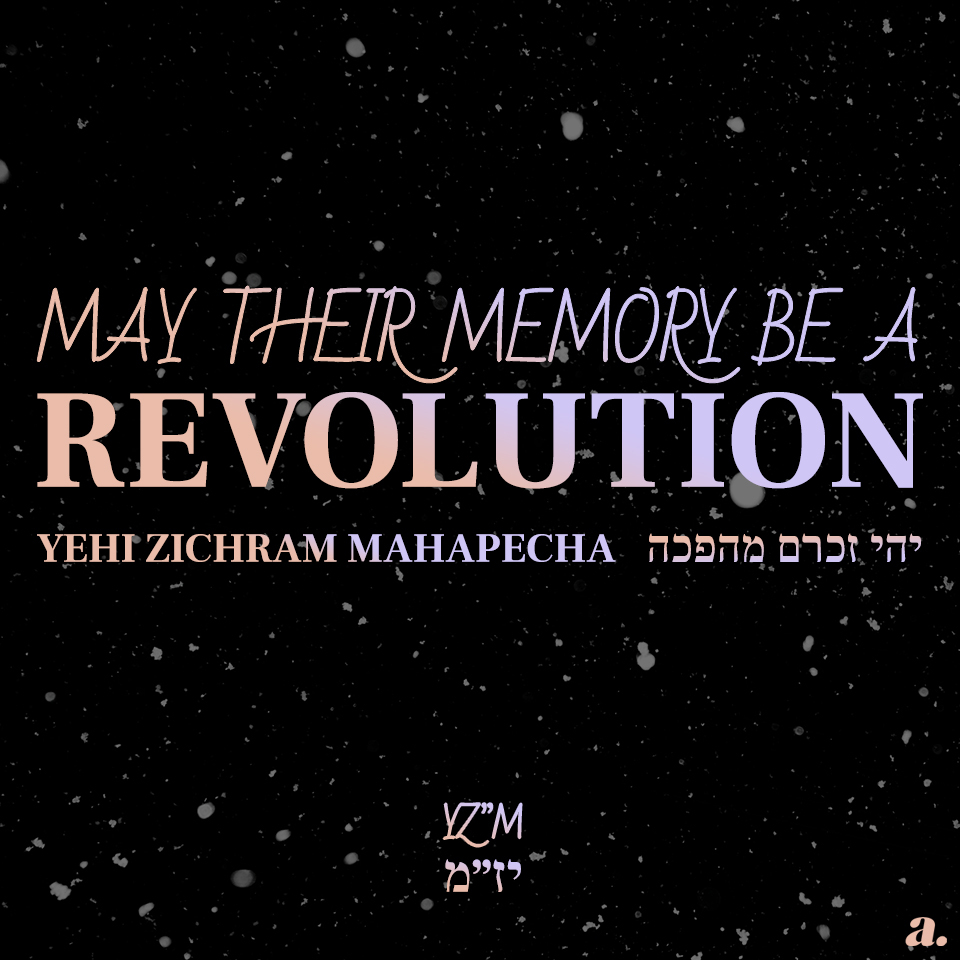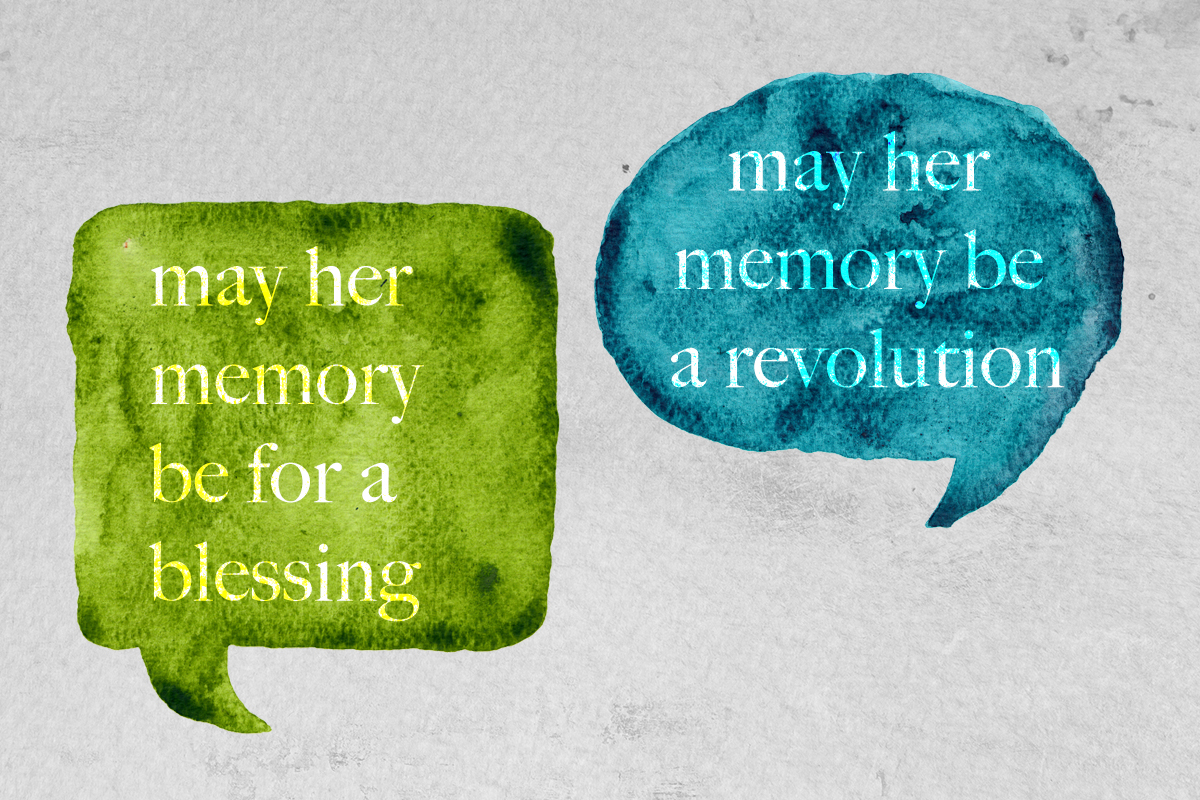When Ruth Bader Ginsburg passed away on September 18, many took to social media to share sentiments like “may her memory be a blessing” and “may her memory be a revolution.”
What do these phrases mean? Where did they originate? How should we use them? Let’s break it down.
What do Jewish people say when someone dies?
Lots of things. Often, when someone dies, the traditional Jewish response is “yehi zichra baruch,” which translates to “may her memory be a blessing” or “may her memory be for a blessing.”
There are a few other acronyms and phrases used for mourning. When you see a name followed by any of these acronyms, the implication is that the person mentioned is not alive. Courtesy of My Jewish Learning:
A”H
ע״ה
Stands for: alav hashalom (עליו השלום), aleha hashalom (עליה השׁלום) or aleihem hashalom (עליהם השלום)
Pronounced: ah-LAHV hah-shah-LOHM, ah-lay-HAH hah-shah-LOHM
What it means: Hebrew for “peace be upon him.” Alternately “upon her” or “upon them.”
When it’s used: Following the name of someone who is dead.
BD”E
בּד״א
Stands for: baruch dayan emet (ברוך דיין אמת)
Pronounced: bah-ROOKH dah-YAHN eh-METT
What it means: Hebrew for “blessed is the true judge.”
When it’s used: Commonly said to a mourner upon learning of their loss.
(Yes, BDE means something very different to the non-Jewish internet.)
Z’’L
ז״ל
Stands for: zichrono (זכרונו) [for a man] or zichrona (זכרונה) [for a woman] l’bracha (לבּרכה)
Pronounced: zahl, or zee-chroh-NOH luh-brah-KHAH or zee-chroh-NAH luh-brah-KHAH
What it means: Hebrew literally for “memories for blessing,” usually translated to “may his or her memory be a blessing.”
When it’s used: Usually appears in parentheses after the name of a person who is deceased.
The last one is the most popular in English — for Jews, many say “may her memory be a blessing” after someone dies.

What about “May her memory be a revolution”?
This phrase is relatively new; it began in Israel sometime in 2019 to commemorate victims of domestic violence. As Rachel Stomel wrote in Kveller, “In the context of domestic violence, the customary words ring incongruous and out of place. There is nothing blessed about the way these lives were ripped away from us. Their memorial calls for identifying and confronting the deep-seated conditions that gave rise to their murders, deliberately dismantling them, and then generating active justice in their stead.”
So, Stomel offers an alternative: “Yehi zichra mahapecha” — “May her memory be a revolution.”

In light of the Black Lives Matter movement and the deaths of George Floyd and Breonna Taylor, many have repurposed this commemoration for victims of domestic violence to commemorate victims of racial violence.
In that same Kveller piece, Stomel continues, “In the context of Jewish law, remembrance is not a reflexive, passive process directed inward. Our sages teach that the way we fulfill the Torah’s commandment to remember the Sabbath — ‘zachor et Yom HaShabbat le’kodsho’ (‘remember the Sabbath day to keep it holy’) — is by active declaration in the performance of the kiddush, the Shabbat blessing over wine. We are commanded to remember the Amelikites’ brutal massacre of our people — ‘zachor et asher asah lecha Amalek ‘ (‘remember what Amalek did to you’) — through intentional, public, verbal affirmation and by ridding the world of the evil that they represent. Neither of these Torah commandments can be fulfilled by quiet contemplation; memorialization must manifest through specific action.” That specific action can be things like protesting or passing laws — anything that creates lasting change.
So, as Stomel writes, “now is not the time for silent reflection and unobtrusive mourning that stops short of implementing any fundamental change. For memory to mean anything, it must be active. It must be revolutionary.”
Therefore, in light of RBG’s death, many found this honorific especially apt. In honor of Ginsburg, let’s fight to actively uphold her memory — and her legacy.



